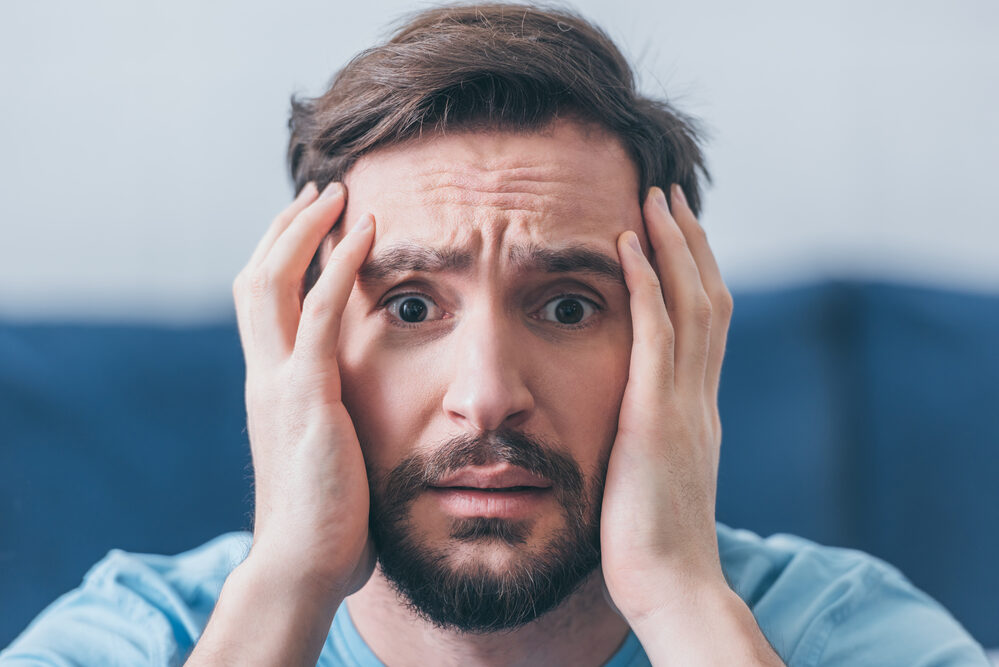Anxiety and You: Understanding the Symptoms

Anxiety is something that nearly everyone experiences at some point in their lives. Whether it's a feeling of nervousness before a big presentation or the general unease that comes with a stressful situation, anxiety is a normal part of life. However, when anxiety becomes chronic or overwhelming, it can start to interfere with daily activities and overall well-being. Understanding the symptoms of anxiety is an essential first step toward managing it effectively.
What Is Anxiety?
At its core, anxiety is the body's natural response to stress. It’s a feeling of fear or apprehension about what's to come. Anxiety can arise in response to a specific event, such as a job interview, or it can be more generalized, with no obvious trigger. The feeling of anxiety can range from mild unease to intense fear, and it may be accompanied by both physical and emotional symptoms.
While occasional anxiety is normal, persistent anxiety may develop into an anxiety disorder, which can take several forms, including Generalized Anxiety Disorder (GAD), panic disorder, social anxiety disorder, or specific phobias.
Recognizing the Symptoms of Anxiety
The symptoms of anxiety can vary from person to person, but there are several common signs that may indicate the presence of anxiety. These symptoms may affect both the mind and body and can manifest in different ways.
Emotional Symptoms
- Excessive Worry: One of the most common signs of anxiety is an overwhelming sense of worry, often about situations or events that may not be likely to happen.
- Irritability: Anxiety can cause a person to feel easily frustrated or irritable, even over small matters.
- Restlessness: Feeling constantly "on edge" or unable to relax is a common emotional symptom of anxiety.
- Difficulty Concentrating: People experiencing anxiety often find it hard to focus on tasks, as their minds may be consumed by worry or fear.
Physical Symptoms
- Increased Heart Rate: A racing heart or palpitations are common physical manifestations of anxiety.
- Shortness of Breath: Difficulty breathing or a sensation of being unable to catch your breath can occur during periods of anxiety.
- Sweating: Excessive sweating, even in cool environments, is a frequent symptom, especially in moments of heightened anxiety.
- Muscle Tension: Anxiety can cause muscles to become tense, leading to headaches, back pain, or overall physical discomfort.
- Nausea or Upset Stomach: The body’s stress response can also affect the digestive system, causing stomach aches, nausea, or even vomiting in severe cases.
Behavioral Symptoms
- Avoidance: People with anxiety may go to great lengths to avoid situations that trigger their symptoms. This might include avoiding social gatherings, certain places, or even everyday tasks.
- Sleep Disturbances: Anxiety often leads to trouble falling or staying asleep, leading to fatigue and irritability.
When Does Anxiety Become a Problem?
While everyone experiences anxiety from time to time, it becomes a problem when it starts to interfere with your day-to-day life. If you’re unable to manage anxiety on your own, it can lead to chronic stress, and may impact your relationships, job performance, and overall health.
Anxiety disorders can manifest in various forms, from persistent worrying (Generalized Anxiety Disorder) to more acute episodes of panic attacks. If your anxiety is causing significant distress or impairing your ability to function, it’s essential to seek help.
Managing Anxiety: Tips for Coping
Fortunately, there are many strategies for managing anxiety. Here are a few techniques that may help:
-
Mindfulness and Meditation: These practices help center your mind and reduce stress. Focusing on the present moment can break the cycle of anxious thoughts.
-
Regular Exercise: Physical activity releases endorphins, which are natural mood boosters. Exercise can help reduce both the mental and physical symptoms of anxiety.
-
Breathing Techniques: Deep breathing exercises can help calm the body and mind in moments of acute anxiety. Try slow, controlled breaths to bring your heart rate down.
-
Seeking Support: Talking to a trusted friend, family member, or therapist can provide relief and perspective. Cognitive-behavioral therapy (CBT) is especially effective for many people with anxiety disorders.
-
Medication: For some, medications such as anti-anxiety drugs or antidepressants may be necessary to manage symptoms, especially when they are severe.
When to Seek Professional Help
If your anxiety is severe, persistent, or interfering with your ability to function in everyday life, it may be time to seek professional help. A mental health professional can help you identify the underlying causes of your anxiety, develop coping strategies, and provide therapy or medication to manage symptoms.
Conclusion
Anxiety is a natural part of life, but when it becomes overwhelming, it can take a toll on your health and happiness. By recognizing the symptoms and understanding how anxiety affects both your mind and body, you can take the necessary steps to manage it. Remember, you are not alone, and help is available to those who seek it. Managing anxiety takes time and practice, but with the right tools and support, it is possible to live a fulfilling and balanced life.
- News & Updates
- Travel Destinations
- Maldivian Tourism
- Lifestyle
- Personal Stories & Experiences
- Sports
- Water Sports & Adventure
- Accommodation & Stays
- Outdoor Activities
- Local Culture & Heritage
- Spa & Wellness
- Transportation
- άλλο
- Fishes and Marine Species
- Ιστορίες
- Health & Wellness
- Recipe
- Life Lessons



